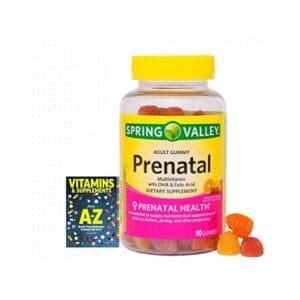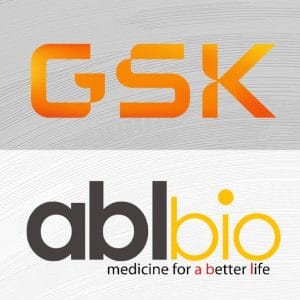During pregnancy, a woman’s nutritional needs increase to support the growth and development of her baby. Choline, an essential nutrient, plays a vital role in fetal development, particularly in the formation of the brain and nervous system. Research has shown that adequate choline intake during pregnancy can have numerous benefits for both mother and baby, including improved cognitive function, reduced risk of birth defects, and enhanced overall health outcomes. As expectant mothers strive to make informed decisions about their diet and lifestyle, understanding the importance of choline during pregnancy is crucial for a healthy pregnancy outcome.

Understanding the Importance of Choline During Pregnancy
Choline is an essential nutrient that plays a crucial role in various bodily functions, particularly during pregnancy. It is involved in the production of acetylcholine, a neurotransmitter that is vital for brain function and development. Moreover, choline is necessary for the synthesis of phospholipids, which are key components of cell membranes. During pregnancy, choline is particularly important for the fetal brain development and the overall health of the mother.
The Role of Choline in Fetal Brain Development
Choline is crucial for the development of the fetal brain, as it is involved in the production of acetylcholine, a neurotransmitter that regulates various cognitive functions. Research has shown that choline supplementation during pregnancy can improve fetal brain development and enhance cognitive function in children.
| Benefits of Choline for Fetal Brain Development | Description |
|---|---|
| Improved cognitive function | Choline supplementation has been shown to improve cognitive function in children. |
| Enhanced brain development | Choline is essential for the production of acetylcholine, a neurotransmitter that regulates brain development. |
| Reduced risk of neural tube defects | Choline has been shown to reduce the risk of neural tube defects in newborns. |
Choline and Pregnancy: Reducing the Risk of Complications
Choline has been shown to reduce the risk of pregnancy complications, such as preeclampsia and gestational diabetes. It is also essential for the overall health of the mother, as it helps to regulate homocysteine levels, a marker of cardiovascular health.
| Benefits of Choline for Pregnancy | Description |
|---|---|
| Reduced risk of preeclampsia | Choline supplementation has been shown to reduce the risk of preeclampsia in pregnant women. |
| Lower risk of gestational diabetes | Choline has been shown to lower the risk of gestational diabetes in pregnant women. |
| Regulation of homocysteine levels | Choline helps to regulate homocysteine levels, a marker of cardiovascular health. |
The Importance of Choline for Maternal Health
Choline is not only essential for fetal development but also for the overall health of the mother. It helps to regulate liver function and is involved in the metabolism of homocysteine, a marker of cardiovascular health.
| Benefits of Choline for Maternal Health | Description |
|---|---|
| Regulation of liver function | Choline is essential for the regulation of liver function and metabolism. |
| Metabolism of homocysteine | Choline is involved in the metabolism of homocysteine, a marker of cardiovascular health. |
| Improved overall health | Choline supplementation has been shown to improve overall health in pregnant women. |
Food Sources of Choline
Choline is found in various food sources, including eggs, meat, and fish. Pregnant women can increase their choline intake by consuming these foods as part of a balanced diet.
| Food Sources of Choline | Choline Content (mg) |
|---|---|
| Eggs | 125-150 mg per large egg |
| Meat | 70-100 mg per 3 oz serving |
| Fish | 50-100 mg per 3 oz serving |
Choline Supplementation During Pregnancy
While choline can be obtained through a balanced diet, some pregnant women may require choline supplementation to meet their daily needs. Pregnant women should consult their healthcare provider before taking any supplements.
| Benefits of Choline Supplementation | Description |
|---|---|
| Improved fetal brain development | Choline supplementation has been shown to improve fetal brain development. |
| Reduced risk of pregnancy complications | Choline supplementation has been shown to reduce the risk of pregnancy complications. |
| Improved overall health | Choline supplementation has been shown to improve overall health in pregnant women. |
Do breastfeeding moms need choline?

Breastfeeding moms require adequate amounts of choline, an essential nutrient that plays a crucial role in various bodily functions, including brain development and metabolism. Choline is particularly important for infant growth and development, as it is secreted in breast milk and supports the production of acetylcholine, a neurotransmitter involved in various physiological processes. A deficiency in choline during lactation may impact the quality and composition of breast milk, potentially affecting infant development.
Benefits of Choline for Breastfeeding Moms
Choline supplementation during breastfeeding has been associated with several benefits, including improved cognitive function and liver health. Research suggests that choline may also support the overall health and well-being of breastfeeding mothers. Some key advantages of choline for breastfeeding moms include:
- Increased production of acetylcholine, which supports brain function and memory.
- Enhanced liver health through the reduction of homocysteine levels and improved lipid metabolism.
- Support for fetal brain development during pregnancy and continued support during lactation.
Choline-Rich Foods for Breastfeeding Moms
Breastfeeding mothers can obtain choline through a balanced diet that includes choline-rich foods. Some of the richest sources of choline include eggs, meat, fish, and soy products. Incorporating these foods into their diet can help breastfeeding moms meet their daily choline needs. Key choline-rich foods include:
- Eggs, particularly egg yolks, which are among the richest sources of choline.
- Lean meats, such as chicken and beef, which provide a significant amount of choline.
- Fish and seafood, like salmon and shrimp, which are not only rich in choline but also in omega-3 fatty acids.
Recommended Choline Intake for Breastfeeding Moms
The adequate intake of choline for breastfeeding mothers is higher than for non-pregnant, non-lactating women. The recommended daily intake is around 550 mg per day. Meeting this requirement is crucial to support both maternal health and infant development through breast milk. Factors to consider when determining individual choline needs include:
- Genetic variations that affect choline metabolism, such as mutations in the PEMT gene.
- Dietary patterns that may influence choline intake and overall nutrient balance.
- Individual health status, including conditions that may impact choline metabolism or requirements.
How does choline affect the fetus?

Choline is an essential nutrient that plays a crucial role in fetal development during pregnancy. It is involved in various physiological processes, including brain development, metabolism, and neurotransmitter synthesis. Maternal choline intake has been shown to have a positive impact on fetal development, particularly in the areas of brain and cognitive development.
Role of Choline in Fetal Brain Development
Choline is converted into acetylcholine, a neurotransmitter that plays a key role in memory and cognitive function. Studies have shown that maternal choline supplementation can enhance fetal brain development by increasing the production of acetylcholine. Some key aspects of choline’s role in fetal brain development include:
- Increased production of stem cells that differentiate into brain cells
- Enhanced neurogenesis and neural migration
- Improved cognitive function and memory in offspring
Choline’s Impact on Fetal Metabolism and Gene Expression
Choline is also involved in various metabolic processes, including the synthesis of phospholipids and the metabolism of homocysteine. Maternal choline intake can influence fetal metabolism and gene expression, with potential long-term consequences for offspring health. Key aspects of choline’s impact on fetal metabolism and gene expression include:
- Regulation of gene expression involved in metabolic pathways
- Modulation of epigenetic marks that influence fetal development
- Influence on lipid metabolism and the development of metabolic disorders
Consequences of Choline Deficiency During Pregnancy
A deficiency in choline during pregnancy can have negative consequences for fetal development, including impaired brain development and increased risk of neural tube defects. Some potential consequences of choline deficiency during pregnancy include:
- Increased risk of birth defects, such as neural tube defects
- Impaired cognitive development and memory in offspring
- Potential long-term consequences for metabolic health and disease risk
What trimester is best for choline?

The optimal trimester for choline supplementation is a crucial aspect of fetal development during pregnancy. Choline is an essential nutrient that plays a significant role in various bodily functions, including brain development, metabolism, and the structure of cell membranes. Research has shown that choline supplementation during pregnancy can have a positive impact on fetal brain development and may even have long-term benefits for the child’s cognitive function.
Importance of Choline During Pregnancy
Choline is particularly important during pregnancy due to its role in fetal brain development. Studies have shown that maternal choline supplementation can enhance fetal brain development and improve cognitive function in offspring. The benefits of choline supplementation are thought to be most pronounced during the third trimester, when the fetal brain is undergoing rapid development. Key benefits of choline supplementation during pregnancy include:
- Enhanced fetal brain development: Choline supplementation has been shown to improve fetal brain development and reduce the risk of neural tube defects.
- Improved cognitive function: Maternal choline supplementation has been linked to improved cognitive function in offspring, including better memory and attention.
- Reduced risk of pregnancy complications: Choline supplementation may also reduce the risk of pregnancy complications, such as preeclampsia.
Choline Supplementation and Fetal Brain Development
The third trimester is a critical period for fetal brain development, and choline supplementation during this time may be particularly beneficial. Research has shown that choline supplementation can enhance the development of the fetal brain, particularly in areas responsible for attention and memory. The benefits of choline supplementation during the third trimester include:
- Increased production of brain cells: Choline supplementation has been shown to increase the production of brain cells in the fetus, which may improve cognitive function.
- Improved neural tube closure: Choline supplementation may also reduce the risk of neural tube defects by promoting proper neural tube closure.
- Enhanced fetal brain maturation: Choline supplementation may also promote fetal brain maturation, which is critical for optimal cognitive function.
Optimal Timing for Choline Supplementation
While choline supplementation is beneficial throughout pregnancy, the optimal timing for supplementation is during the third trimester. Research has shown that third-trimester choline supplementation is particularly effective in enhancing fetal brain development and improving cognitive function in offspring. The benefits of third-trimester choline supplementation include:
- Peak fetal brain development: The third trimester is a period of rapid fetal brain development, making it an ideal time for choline supplementation.
- Maximized cognitive benefits: Third-trimester choline supplementation may maximize the cognitive benefits for the offspring.
- Reduced risk of long-term cognitive impairment: Choline supplementation during the third trimester may also reduce the risk of long-term cognitive impairment in offspring.
Frequently Asked Questions
What are the benefits of choline during pregnancy for the baby?
Choline is an essential nutrient that plays a crucial role in the development of the baby’s brain and spinal cord. During pregnancy, choline is converted into acetylcholine, a neurotransmitter that helps regulate fetal brain development. Research has shown that adequate choline intake during pregnancy can improve cognitive function and memory in children. Moreover, choline has been found to reduce the risk of neural tube defects and other birth defects. Expectant mothers who consume sufficient choline have a lower risk of having a child with Down syndrome and other developmental disorders.
How does choline benefit the mother during pregnancy?
Choline is not only beneficial for the baby, but also for the mother. It helps to regulate homocysteine levels in the blood, which is associated with a reduced risk of preeclampsia and other pregnancy complications. Choline also supports the health of the placenta, which is vital for the baby’s growth and development. Furthermore, choline has been found to reduce the risk of breast cancer and other health problems in the mother. Expectant mothers who consume adequate choline have a lower risk of experiencing depression and other mental health issues during and after pregnancy.
What are the recommended choline intake levels during pregnancy?
The adequate intake level for choline during pregnancy is 450 mg per day. However, many expectant mothers do not meet this recommendation through their diet alone. Food sources rich in choline include eggs, meat, fish, and soy products. Pregnant women can also consider taking a prenatal supplement that contains choline. It is essential to consult with a healthcare provider before taking any supplements to ensure they are safe and suitable.
Can choline supplements be taken during pregnancy, and are they safe?
Choline supplements can be a convenient way to ensure adequate intake during pregnancy. However, it is crucial to choose a high-quality supplement from a reputable manufacturer. Expectant mothers should consult with their healthcare provider before taking any choline supplements to discuss the safety and efficacy of the product. When taken as directed, choline supplements are generally considered safe and can help support the health of both the mother and the baby.














